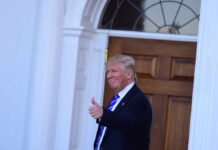
Nvidia’s denial of “backdoors” in its H20 AI chips comes amidst escalating scrutiny by China, highlighting tensions in US-China tech relations.
Story Overview
- Nvidia denies allegations of “backdoors” in its H20 AI chips.
- China’s Cyberspace Administration demands explanations from Nvidia.
- US lawmakers propose new location tracking requirements for AI chips sold to China.
- National security experts urge the US to reconsider allowing H20 exports to China.
Nvidia Under Scrutiny
Nvidia, the world’s leading AI chipmaker, finds itself at the center of a geopolitical storm as China’s Cyberspace Administration summons company representatives to discuss alleged security vulnerabilities in its H20 AI chips. This move follows the US government’s recent decision to allow Nvidia to resume sales of these chips to China after a temporary export ban. Nvidia swiftly denied the presence of any “backdoors” in its chips, emphasizing their commitment to cybersecurity.
Nvidia denies back-door features in its H20 chips after Beijing raises security concerns https://t.co/tUrM9Ih7wH
— South China Morning Post (@SCMPNews) August 1, 2025
This incident marks a significant shift in the ongoing US-China tech rivalry, with China now reversing the usual dynamics by questioning the security of a US company’s product. Historically, the US has raised similar concerns over Chinese firms like Huawei, citing potential risks of espionage. Now, the tables have turned, creating a new flashpoint in the already tense bilateral relations.
Watch: Nvidia Denies ‘Backdoors’ in H20 AI Chips Amid China’s Security Concerns
US Export Policy Under Fire
The US government’s decision to allow the export of Nvidia’s H20 chips to China has not been without controversy. National security experts have raised alarms, arguing that these chips could bolster China’s AI capabilities, potentially undermining US strategic interests. In response to these concerns, US lawmakers have proposed new regulations requiring built-in location tracking features in AI chips sold to China. This proposal aims to enhance oversight and ensure that exported technology cannot be misused for military or espionage purposes. However, it also reflects the delicate balancing act the US faces between maintaining economic ties and safeguarding national security.
China’s Technological Ambitions
China’s inquiry into Nvidia’s chips underscores its broader ambition to achieve technological independence and leadership in AI and semiconductors. The country has been ramping up efforts to develop domestic alternatives, such as Huawei’s 910C chip, to reduce reliance on foreign technology. This push is part of China’s strategic plan to strengthen its tech sector amid slowing economic growth and other domestic challenges.
The scrutiny on Nvidia could accelerate the adoption of these domestic chips, potentially reshaping the global semiconductor market. If foreign suppliers like Nvidia face persistent barriers in China, it could lead to a further decoupling of US and Chinese tech ecosystems, impacting global supply chains and innovation.

























